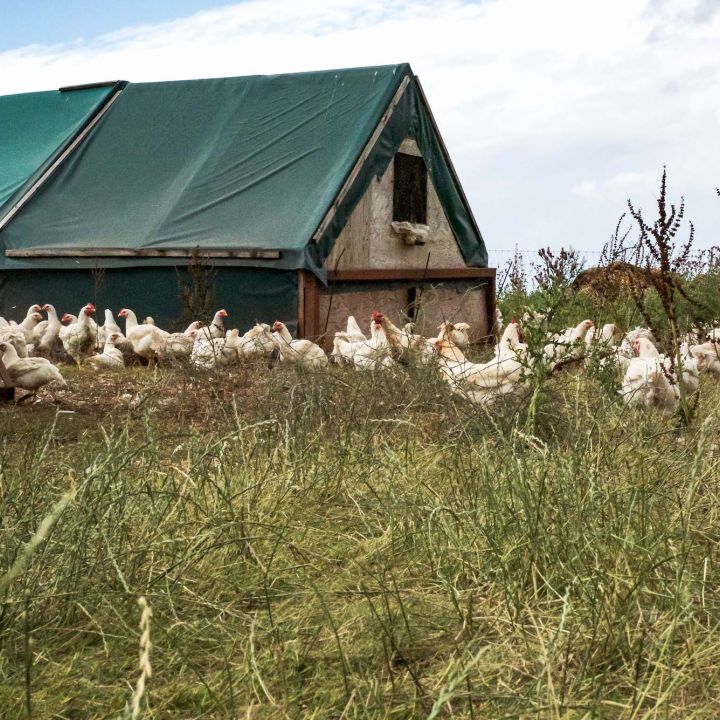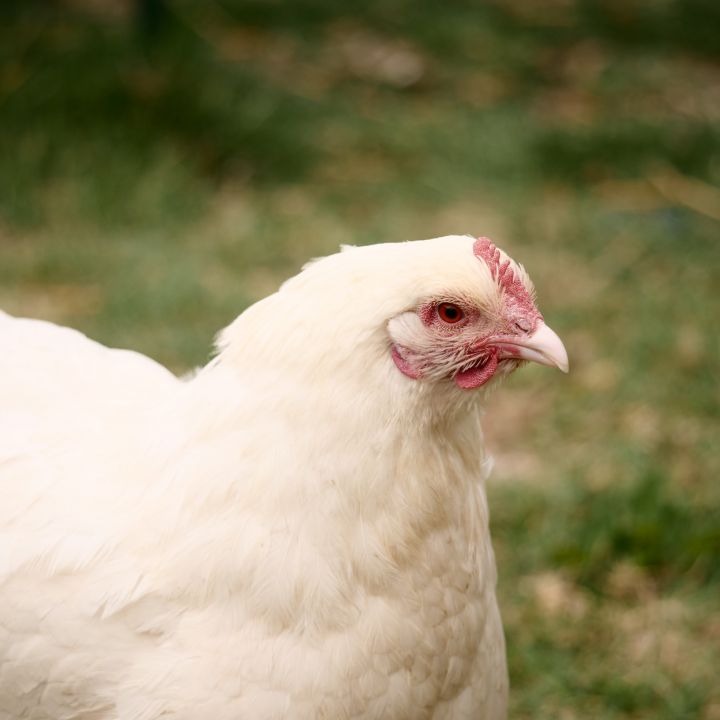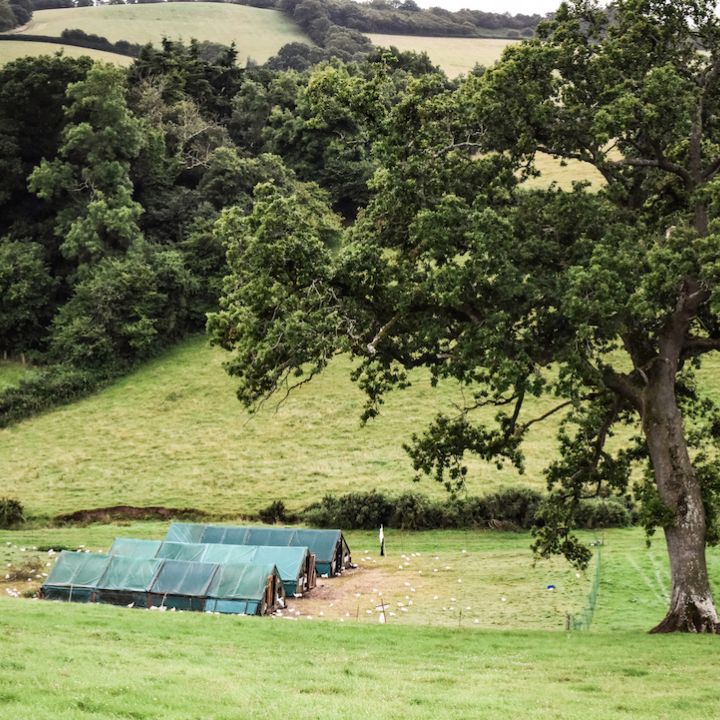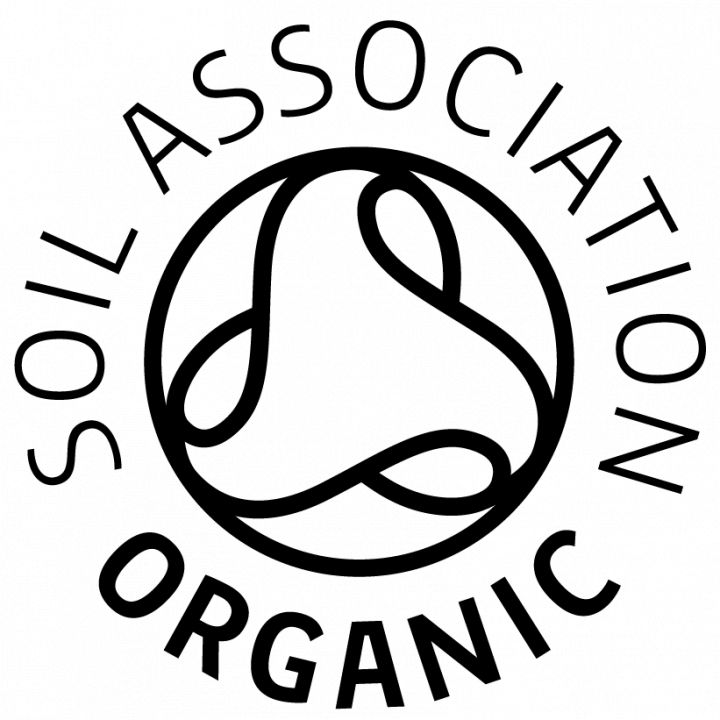Sadly, the sentiment in the title of this article is not true. In fact, the difference between chickens reared in an organic system and a conventional ‘battery’ system are so stark, it is staggering. But this isn’t an article about battery farming methods - vivid images of chickens upon chickens within the tightest of spaces with limited access to light is easy to condemn.
Instead, we want to highlight the importance of understanding some of the assurances that are made by those who sell you your humble chicken – assurances that don’t necessarily stack up to as much as you might think. We’re talking specifically about the terms ‘free-range’ and ‘organic’, which can be surprisingly different.
Free-range is a term that most of us have come to accept means that an animal will be left to live outdoors in a natural environment for a time during its life. We are often asked if our organic chickens are free-range and of course, the answer is yes, but what not everyone realizes is that the organic standard goes so much further than that.
In truth, the standards for free-range chickens simply mean that they are slaughtered after at least 56 days with half of that time spent with access to outdoors. Although significantly better than intensive systems, it is a misused term that can give consumers a false sense of ‘doing the best by the animal’.
At The Organic Butchery rather than dismiss different methods of farming, we believe the best way to talk about our fragile industry is to highlight the things that are being done well. We know many of our customers actively look for organic chicken but may not be aware of all of the rules in place for farmers to achieve this. So here are some of the reasons we so passionately believe you should choose Organic Chicken when you have the option:
- Soil Association Organic standards ensure chickens have more space to behave naturally. Each hen has a minimum of 10 square meters of space outside, whilst a free-range has hen 4 square meters.
- This leads to smaller flock sizes with organic standards allowing maximum of 16,000 hens in one space compared to a whopping 30,000 for free-range.
- Organic chicken farmers must not conduct beak trimming, as this prevents the hens from expressing their natural behaviour.
- Organic farmers must provide chickens with enrichment within the fields. Hens love to forage, dig dust baths, jump onto old tree trunks and other obstacles. This discourages them from feather pecking.
- These welfare measures promote healthier birds. Organic standards forbid the use of routine vaccinations and Organic Poultry Farmers can only treat birds that show signs of illness, vaccinations are not restricted in a free-range system.
- Chicken, whether free-range or organic cannot flourish on grass alone. Don’t be misled by the term pasture-raised as this simply means a bird has lived its life outdoors. All poultry requires some grain and organic standards mean the grain fed to organic chickens is 100% natural and is free of any traces of pesticide or artificial fertilizer. It is also not possible to feed any genetically modified feed to an organic chicken. Living more of their life outdoors means organic chickens also benefit from the addition of organic plants, grubs, and insects to their diet.
- Slaughter of organic chickens cannot take place before 70 days. This slow growth to maturity leads to plumper chickens with noticeably more flavour. A free-range chicken can be slaughtered after 56 days.
- Slow grown organic chicken is considerably higher in Omega-3 and other nutrients than chicken from other systems.
- Of course, organic farming by principle is also better for the environment too. On average, plant, insect and bird life is 50% more abundant on organic farms. Frequently resting the organic paddocks that chickens roam on allows vegetation to recover and naturally prevents a build-up of pests.
We acknowledge that there are many farmers producing wonderful chicken on a small-scale, and if you have such a producer local to you, we would urge you to support them. But if you are after total assurance that you are buying poultry that has had the liberty to lead a wholly organic life, look for the logo. Soil Association demand some of the most stringent standards in the world of food and farming production and this ensures that you can be fully confident in the chicken you enjoy.





